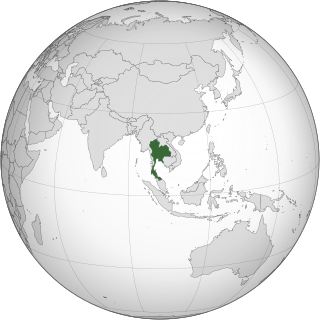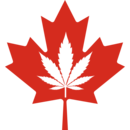
Cannabis in Canada is legal for both recreational and medicinal purposes. Cannabis was originally prohibited in 1923 until medicinal use of cannabis was legalized nationwide under conditions outlined in the Marijuana for Medical Purposes Regulations issued by Health Canada, which regulated medical cannabis effective 30 July 2001, and was later superseded by the Access to Cannabis for Medical Purposes Regulations, which also permitted seed, grain, and fibre production under licence by Health Canada.

Cannabis in British Columbia (BC) relates to a number of legislative, legal, and cultural events surrounding the use and cultivation of cannabis in the Canadian province of British Columbia. As with the rest of Canada, cannabis became legalized on 17 October 2018, following the enactment of the Cannabis Act, or Bill C-45. Prior to that, though the drug was illegal in Canada, its recreational use was often tolerated and was more commonplace in the province of BC as compared to most of the rest of the country. The province's inexpensive hydroelectric power and abundance of water and sunshine—in addition to the many hills and forests —made it an ideal cannabis growing area. The British Columbia cannabis industry is worth an estimated CA$2 billion annually and produces 36.6 percent of all Canadian cannabis. The province is also the home of the cannabis activist and businessman Marc Emery.

Cannabis in New York has been legal for medical purposes under New York law since 2016, and recreational purposes since 2021. As of 2022, recreational cannabis is for sale legally in the state, only through state-approved dispensaries.

Cannabis is legal in Illinois for both medical and recreational use. Illinois became the eleventh state in the US to legalize recreational marijuana effective January 1, 2020.

Cannabis in Hawaii is illegal for recreational use, but decriminalized for possession of three grams or less. Medical use was legalized through legislation passed in 2000, making Hawaii the first state to legalize medical use through state legislature rather than through ballot initiative.

Cannabis in New Jersey is legal for both medical use and recreational use. An amendment to the state constitution legalizing cannabis became effective on January 1, 2021, and enabling legislation and related bills were signed into law by governor Phil Murphy on February 22, 2021.

In Thailand, cannabis, known by the name Ganja has recently had new laws passed through. Cannabis that has less than 0.2% THC, referred to as industrial hemp in the USA, was legalised on 9 June 2022. Medicinal cannabis, with no THC restrictions, was made legal in 2018 but required patients to obtain a prescription from a medical practitioner. Recreational cannabis is still illegal according to Thai law.

The Cannabis Act (C-45) of June, 2018 paved the way for the legalization of cannabis in Canada on 17 October 2018. Police and prosecution services in all Canadian jurisdictions are currently capable of pursuing criminal charges for cannabis marketing without a licence issued by Health Canada. The Supreme Court of Canada has held that the federal Parliament has the power to criminalize the possession of cannabis and that doing so does not infringe upon the Canadian Charter of Rights and Freedoms. The Ontario Court of Appeal and the Superior Court of Ontario have, however, held that the absence of a statutory provision for medical marijuana is unconstitutional, and to that extent the federal law is of no force and/or effect if a prescription is obtained. The recreational use of cannabis has been legalized by the federal government, and took effect on 17 October 2018.
The Cannabis Act is a law which legalized recreational cannabis use in Canada in combination with its companion legislation Bill C-46, An Act to Amend the Criminal Code. The law is a milestone in the legal history of cannabis in Canada, alongside the 1923 prohibition.

Cannabis in Ontario is legal for both medical and recreational purposes. Cannabis in Canada has been legal for medicinal purposes since 2001 under conditions outlined in the Access to Cannabis for Medical Purposes Regulations, issued by Health Canada, while seed, grain, and fibre production are permitted under licence. The federal Cannabis Act, legalizing cannabis for recreational use, came into effect on 17 October 2018.

Cannabis in Quebec became legal when the national Cannabis Act went into force on 17 October 2018. Cannabis in Canada has been legal for medicinal purposes since 2001 under conditions outlined in the Marihuana for Medical Purposes Regulations, later superseded by the Access to Cannabis for Medical Purposes Regulations, issued by Health Canada and seed, grain, and fibre production was permitted under licence by Health Canada.

Cannabis in Nunavut, as in the rest of Canada, became legal for recreational use on the effective date of the Cannabis Act on 17 October 2018.

Cannabis in New Brunswick became legal for recreational use when the Cannabis Act went into force across the country on October 17, 2018.

On October 17, 2018, cannabis was legalized in Canada for recreational and medical purposes. It was already legal for medicinal purposes, under conditions outlined in the Marihuana for Medical Purposes Regulations issued by Health Canada, and for seed, grain, and fibre production under licence by Health Canada.

Cannabis in Prince Edward Island became legal when the national Cannabis Act went into force on October 17, 2018.

Cannabis has been legal in Nova Scotia and the entire country of Canada since October 17, 2018, the effective date of the Cannabis Act. Each province and territory set its own laws for various aspects, such as the legal age, whether householders can grow cannabis and the method of retail sales. Cannabis has been legal in Canada for medicinal purposes since 2001 under conditions outlined in the Marihuana for Medical Purposes Regulations, later superseded by the Access to Cannabis for Medical Purposes Regulations, issued by Health Canada and seed, grain, and fibre production was permitted under licence by Health Canada.

Non-medical cannabis in Manitoba became legal when the national Cannabis Act went into force on October 17, 2018.

Cannabis in Newfoundland and Labrador became legal when the national Cannabis Act went into force on October 17, 2018.
Cannabis in Yukon became legal when the national Cannabis Act went into force on October 17, 2018.

Cannabis in the Northwest Territories became legal when the national Cannabis Act went into force on 17 October 2018.








